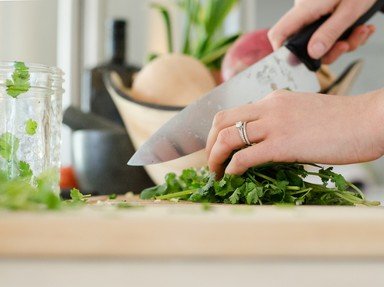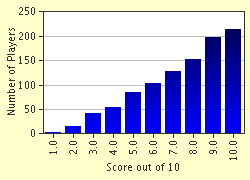Quiz Answer Key and Fun Facts
1. When a chef juliennes a fruit or vegetable, the results look like which of the following?
2. When apples or potatoes are peeled and sliced, the bits will turn brown if not used immediately. To prevent this, they may be soaked in water mixed with lemon juice or white vinegar. What is this preventative measure called?
3. Slightly underripe fruits can be improved for service by maceration. What does macerate mean?
4. Most kitchens are equipped with at least one paring knife. What does "pare" mean?
5. Especially in a hectic kitchen, cooks must not display their temper. On the other hand, tempering an egg is a desirable process. What does tempering mean, in the latter sense?
6. When a recipe directs a cook to pulse food, what should the cook do?
7. The chef hands you a bunch of basil and asks you to prepare a chiffonade. What should you do with it?
8. When meat is browned in a pan, bits of caramelized juices (called fond) remain in the pan. These may be dissolved in a liquid (such as wine, water, stock or vinegar) to form the basis for a sauce. What is this process called?
9. Blanche, as a woman's name, means white or pure. What does blanch mean as a culinary term?
10. When vinegar or citrus juice is whisked into oil to form a thickened liquid, what is the resulting combination of ingredients called?
Source: Author
FatherSteve
This quiz was reviewed by FunTrivia editor
Bruyere before going online.
Any errors found in FunTrivia content are routinely corrected through our feedback system.


